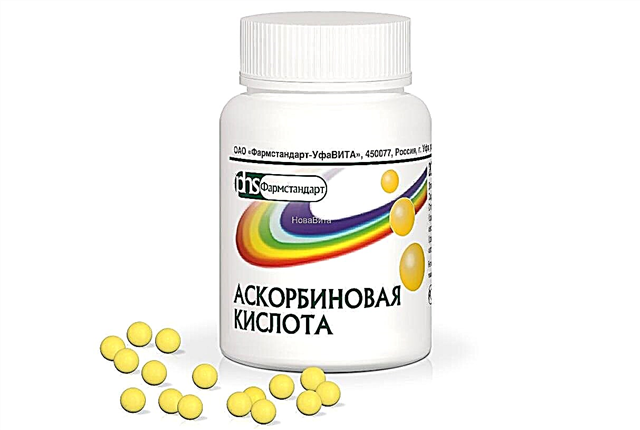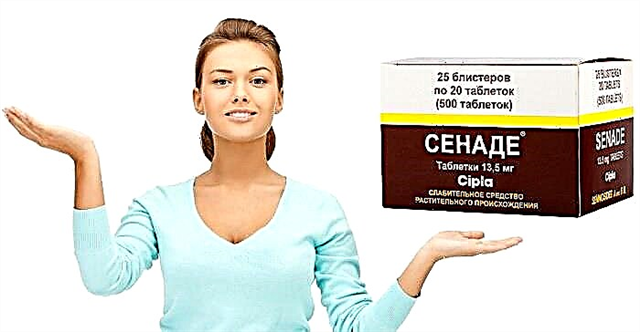
The drug "Cerepro" refers to nootropic drugs, because its use has a positive effect on the functions of the brain. It is often prescribed for the elderly to help people with stroke, dementia, and other brain conditions. However, sometimes neuropathologists prescribe such a medication for children.

Release form
Cerepro is produced by the Russian company Veropharm and is sold in pharmacies in two dosage forms. One of them is capsules, which have an oblong shape and a brownish-red tint. Inside the soft gelatin shell is a clear oily liquid. This version of Cerepro is packed in blisters of 14 capsules and sold in boxes of 1 or 2 blisters.
The second form of the drug is ampoules with a solution, which is administered intravenously in acute diseases, although it can also be injected into muscle tissue. It is transparent, without any shade, and is placed in a glass transparent ampoule in a volume of 4 ml. One package of this type of medicine will fit 3 or 5 ampoules.


Composition
The main component of Cerepro is called choline alfoscerate and is present in both forms of the drug as glyceryl phosphorylcholine hydrate. This compound is in one capsule at a dosage of 400 mg, and in one milliliter of injection solution in an amount of 250 mg. As part of the capsules, it is supplemented with medical gelatin, water, methyl and propylparaben, dye, sorbitol, glycerin and titanium dioxide, and in the ampoules, in addition to the active ingredient, there is only water for injection.

Operating principle
After entering the body, the active substance of the drug is split into two compounds. One of them is choline, a substance that takes part in the formation of acetylcholine, which is an important neurotransmitter. The second compound is glycerophosphate, which is used to synthesize membranes in nerve cells. Thanks to such substances, metabolic processes and blood flow in the brain cells are enhanced, which has a beneficial effect on various brain functions.

Is it used in children?
In contraindications to the injectable form of "Cerepro", the age of up to 18 years is noted, since no studies have been conducted to confirm the safety and effectiveness of these injections in childhood. There are no age limits for the use of capsules in the paper annotation, but because of the solid form, it can be difficult to give such a version of Cerepro to children under school age.
However, in some situations, neurologists and other doctors prescribe such a nootropic agent for children of any age, prescribing it both in capsules and in injections. At the same time, the specialist assesses the need for such treatment and takes into account many other nuances, therefore, it is permissible to use Cerepro in children only as prescribed by a doctor.

Indications
Cerepro is prescribed for various neurological problems and disorders of the brain. This drug is used for:
- encephalopathy;
- problems with memory, concentration and other cognitive processes;
- developmental disorders, for example, with IAD;
- traumatic brain injury;
- problems with blood circulation in the brain tissues;
- nervous tic;
- hydrocephalic syndrome, ADHD and some other disorders.
Contraindications
In the instructions for "Cerepro", among the contraindications, hypersensitivity to the drug is noted, therefore, if an allergic reaction is detected, "Cerepro" cannot be prescribed. For adult women, it is also not prescribed during breastfeeding and when carrying a child.
Side effects
In some children, after taking the capsules, nausea appears, which requires a decrease in the dosage of the medication. Sometimes a child's body reacts to such a nootropic with allergic symptoms (rash, itching and other signs). In such a situation, Cerepro should be canceled immediately.


Instructions for use
The dose of "Cerepro" for a child and the frequency of use of such a drug are determined individually, because for acute pathologies and chronic conditions different dosages are required, moreover, it also depends on the age of the small patient. The duration of treatment is also prescribed by the doctor for each child separately, but usually Cerepro is prescribed for a long period, for example, for 3 months.
It is best to take the capsule before meals, and injections can be administered both intramuscularly and drip into a vein (about 60-80 drops per minute).
Overdose and drug interactions
Excessive doses of Cerepro usually lead to dyspeptic disorders, and activated charcoal and other symptomatic agents are used to eliminate them. As for incompatibility with other drugs, there is no mention of this in the instructions for the capsules and solution.
Terms of sale and storage
To buy "Cerepro" in any form, you need to get a prescription from your doctor. The average cost of 14 capsules is 500 rubles, and for a pack of 28 capsules you need to pay about 900-950 rubles. It is recommended to store the medicine at home in a dry place so that it is inaccessible to babies. The storage temperature should not exceed 25 degrees Celsius, the shelf life of "Cerepro" in capsules and in ampoules is 2 years. If it has expired, it is unacceptable to give such medicine to a child.

Reviews
Many parents respond positively to the use of Cerepro as prescribed by a doctor. They confirm that the course of treatment helped improve memory, eliminate dizziness and headaches, and recover faster from injuries or brain diseases. The advantages of the drug include good tolerance and effectiveness of capsules. The disadvantages are the lack of a form that is convenient for children (for example, in a syrup or suspension) and a rather high price.
Analogs
The most famous drug capable of replacing Cerepro, since it contains the same active compound, is Gliatilin. It is also available in capsules and injection solution, but it costs a little more. Such a remedy is prescribed for the same indications as Cerepro, for patients of any age, but it should not be used in children without a prescription from a neurologist.
Other analogs, also containing choline alfoscerate, are Nookholin Rompharm, Cereton, Holitilin, Gleazer and Delecit. Instead, the doctor may also prescribe another nootropic agent, for example, Cortexin, Nootropil, Anvifen, Pantogam, Phenibut, Semax, Aminalon, and so on.
But, since their effect on the brain is provided by different active compounds, only a doctor should choose any of the nootropics instead of Cerepro.
About the drug "Cerepro" for traumatic brain injury and ischemic stroke, see the following video.



